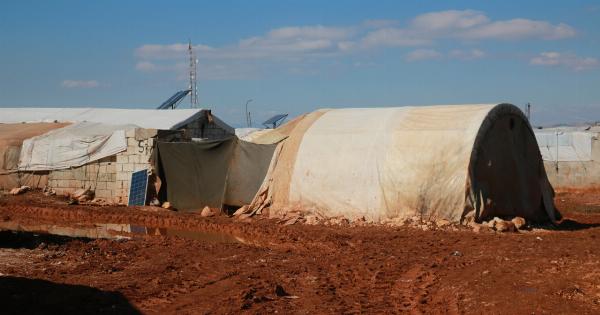Living sustainably as a family is an important way to reduce our impact on the environment and create a healthier future for the next generations.
By making conscious choices and adopting sustainable practices, we can reduce waste, conserve resources, and support a more eco-friendly lifestyle. In this article, we will discuss various ways to live sustainably as a family, from reducing energy consumption to practicing mindful consumption.
1. Reduce Energy Consumption
One of the primary ways to live sustainably as a family is by reducing energy consumption. Teach your children to turn off lights, appliances, and electronics when not in use.
Switch to energy-efficient LED light bulbs and consider installing motion sensors or timers for outdoor lighting. Additionally, encourage natural lighting during the day by keeping curtains open and utilizing daylight whenever possible.
2. Practice Water Conservation
Conserving water is another crucial aspect of sustainable living. Encourage your family members to take shorter showers and turn off the tap while brushing their teeth.
Fix any leaky faucets promptly and opt for water-efficient appliances, such as low-flow toilets and showerheads. You could also collect rainwater for purposes like watering plants or washing cars.
3. Embrace Sustainable Transportation
Reduce your carbon footprint by embracing sustainable transportation options as a family. Whenever possible, choose walking or biking instead of driving. Use public transportation or carpool with neighbors for school drop-offs or other activities.
Additionally, consider investing in an electric vehicle or hybrid car to further reduce emissions when driving longer distances.
4. Grow Your Own Food
Engage your family in the process of growing your own food by starting a vegetable garden. This not only helps you become more self-sufficient but also reduces the need for transportation and packaging associated with store-bought produce.
Even if you don’t have a large backyard, you can grow herbs, lettuce, or tomatoes in containers on balconies or windowsills.
5. Reduce, Reuse, Recycle
Teach your children the mantra of “reduce, reuse, recycle” to inculcate sustainable habits. Encourage them to use reusable water bottles and cloth bags instead of disposable ones.
Donate clothes, toys, and other items that are no longer needed, rather than throwing them away. Set up a recycling center in your home and educate your family about the importance of sorting recyclables properly.
6. Conserve Resources through Mindful Consumption
Mindful consumption involves being aware of our buying habits and making conscious choices. Encourage your family to buy only what is needed and avoid unnecessary purchases.
Prioritize quality over quantity to reduce waste and opt for eco-friendly and sustainable products whenever possible. Teach children about the importance of considering the environmental impact of their choices before making a purchase.
7. Reduce Food Waste
Food waste is a major contributor to environmental degradation. Teach your family about the significance of reducing food waste by planning meals, using leftovers creatively, and composting organic waste.
Involve children in the kitchen and teach them simple recipes to utilize leftovers effectively. By minimizing food waste, you contribute to a more sustainable and efficient food system.
8. Support Local and Sustainable Businesses
Supporting local and sustainable businesses is another way to live sustainably as a family. Shop at local farmers markets or co-ops to reduce the carbon footprint associated with long-distance transportation.
Choose products that are responsibly sourced, organic, and ethically produced. By supporting such businesses, you contribute to the growth of a sustainable economy.
9. Teach Children about Sustainability
It is crucial to educate and involve children in sustainable living practices. Teach them about climate change, pollution, and the importance of protecting the environment. Involve them in activities like recycling, gardening, and water conservation.
Encourage open discussions about sustainability and empower them to be advocates for a greener future.
10. Engage in Community Initiatives
Participating in community initiatives reinforces the importance of sustainable living as a family. Join local clean-up drives, tree-plantation initiatives, or community gardens.
Encourage your children to volunteer for environmental organizations or take part in school initiatives focused on sustainability. By engaging in such activities, you foster a sense of responsibility and belonging towards the environment.
Conclusion
Living sustainably as a family is a collective effort that has long-lasting benefits for both our planet and future generations.
By adopting these sustainable practices and instilling eco-conscious habits in our children, we can create a positive and greener impact on the world we live in. Let us strive to be role models and make sustainable choices that nurture and protect our environment.






























